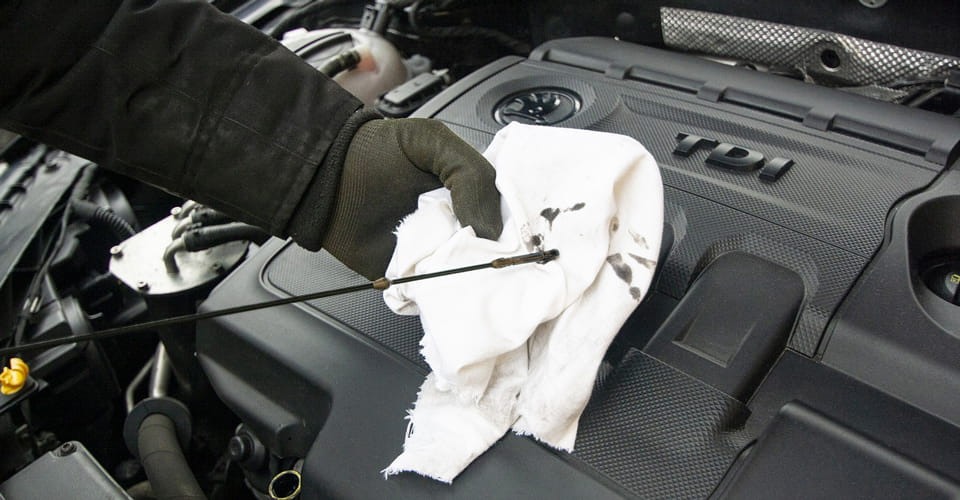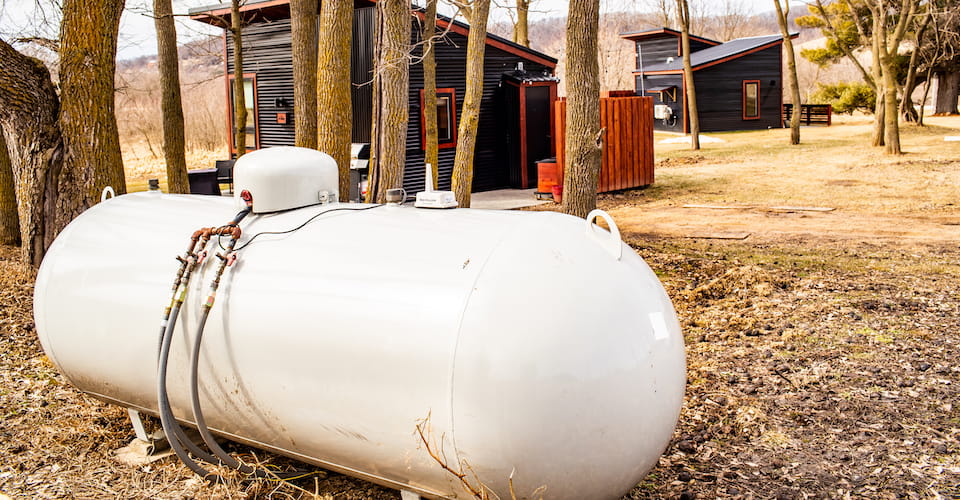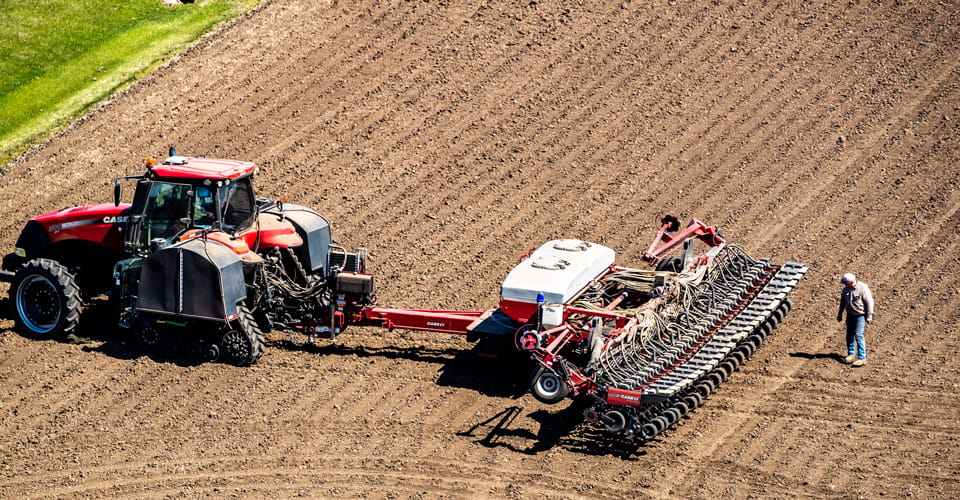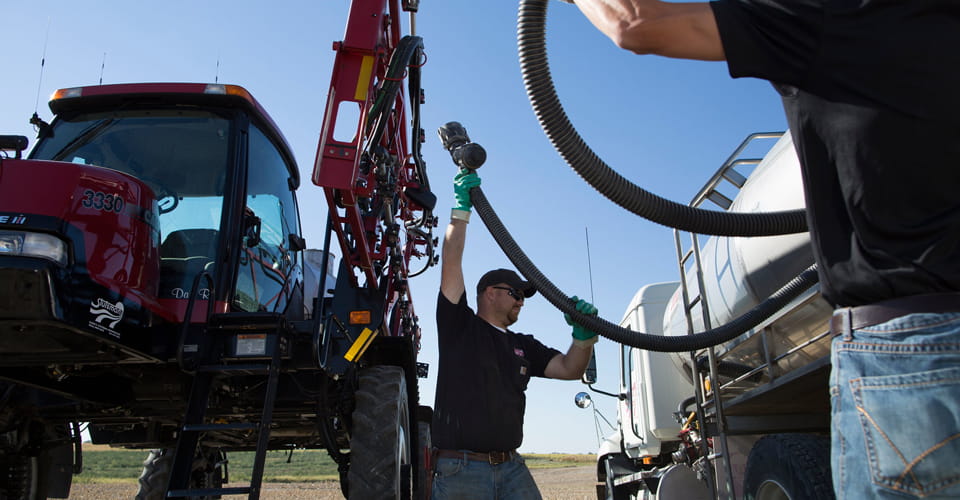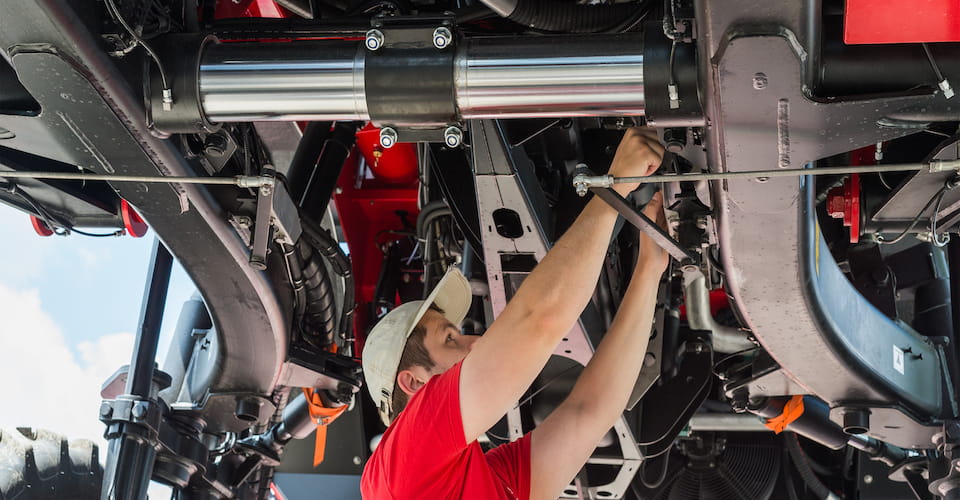
Using the appropriate lubricants on your farm can mean smoother equipment performance, longer engine life and protection against damage like rust and corrosion. In the heat of a busy season, however, it can be easy to not think too much about how to optimize your lubricant use.
Here are some best practices for lubricant management that can quickly be implemented on your operation.
- Store lubricants properly. Get an accurate picture of your annual lubricant usage to determine how much storage you’ll need, whether you’re buying in drums, small packages or bulk. Keep lubricant storage areas clean and don’t be caught with too much lubricant and not enough storage space. If you’re using between 200 and 300 gallons of lubricants per year, optimize your operation by using a bulk tank system.
In addition to ensuring adequate storage, be sure to minimize temperature changes. For example, avoid storing lubricants in an area that receives a lot of sunlight throughout the day followed by shade that causes the temperature to drop. This can lead to condensation and subsequently to oil that ages prematurely. Ideally, store lubricants at a consistent temperature in an insulated building to minimize temperature extremes. - Label storage containers accurately. Ensure each container is labeled correctly and clearly so that there’s no confusion for you, your employees or your Cenex® delivery driver about which lubricant goes where. This will help keep the right lubricant in the right equipment and minimize the chance for errors.
- Use proper tools and equipment. If you have a bulk tank lubricant set-up, use the correct hoses, tubing, pumps and valves, and protect them from environmental contamination to keep them in good working order, preserve lubricant quality and extend oil life. Also, ensure to invest in the correct drainage system and drip tray kit to safely handle excess oil or potential spills.
Consider the convenience of synthetic lubricants
Synthetic lubricants like CENEX MAXTRON® ENVIRO-EDGE® or MAXTRON DEO can be advantageous in a wide range of equipment, no matter the size of your farming operation. Their extended life enables them to perform well in a range of circumstances and temperatures. For example, if you’re a farmer who does a lot of cold weather winter work, synthetics can enable easier engine start-up in subzero temperatures. Synthetics provide you consistent protection in winter and summer, without having to store multiple lubricants. The Cenex line of Maxtron diesel engine oils are backwards compatible and suitable for use in older equipment but be sure to check your owner’s manual to confirm.
Speaking of the synthetic Maxtron line, consider upgrading to a synthetic tractor hydraulic fluid. Often, we look at using synthetic diesel engine oil. But tractor hydraulic fluid is a unique product because it’s multiple fluids in one. By switching to a synthetic tractor hydraulic fluid such as MAXTRON THF+ you can better protect your equipment and maximize its operation.
Talk with your LOCAL CENEX LUBRICANTS DEALER to see how using the right lubricant can help you optimize your purchasing strategy, your equipment and your operation.




